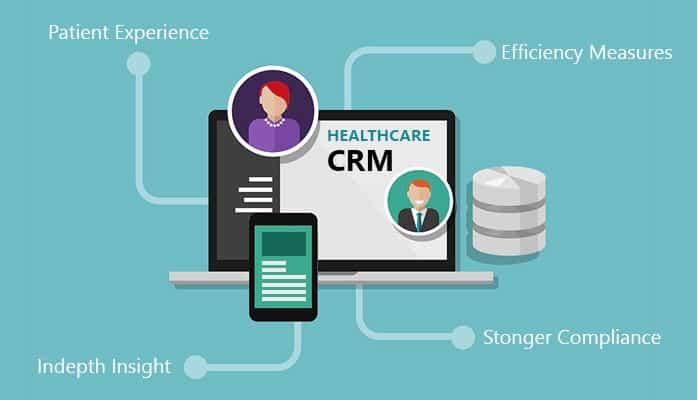Substance use disorder treatment needs patience and real teamwork. Nothing about it is simple. Every person walks in with their own story, their own pain and their own pace. Some people come back after a relapse. Others show up for the first time, scared but ready. No two journeys ever look the same.
For the team, it’s a lot to handle. You have to coordinate, document, follow up and keep things moving. Doing all that with paper files or different systems? It’s messy. It slows everyone down. And when things fall through the cracks, patients feel it.
That’s where behavioral health CRM software really helps. It pulls everything together so the team isn’t scrambling. No more searching through folders or digging up old notes. Appointments, updates and progress, it all shows up in one place. Everyone can actually see what’s going on without guessing. Staff stay on the same page instead of chasing missing info. The work gets lighter. Patients get better support. And the whole process starts to feel more calm and steady for everyone involved.
Easier Intake and Assessment
The first step in recovery is intake. This is where the team collects patient info, checks background and sets a care plan. When intake happens on paper, it often causes delays or mistakes. Someone forgets to note something important or a form goes missing.
With behavioral health CRM software, intake is digital and quick. The team fills forms online, uploads files and saves everything in one place. Each patient has a complete record ready to go. It also saves time for staff and keeps patients from waiting around too long. In England between April 2023 and March 2024, 310,863 adults were in contact with drug and alcohol treatment services, which is a 7% increase.
Keeping the Whole Team Connected
Substance use disorder treatment needs teamwork. Counselors, nurses and case managers all work together but they can’t do that well if information stays stuck in emails or paper folders.
CRM tools fix that. Everyone can see updates in real time. Notes from one person show up for everyone who’s part of the case. It builds stronger teamwork and fewer mix-ups. When the right people have the right info, patients get smoother care.
Tracking Progress and Results
Recovery is never a straight climb. Some days go well, some don’t. Without tracking, it’s easy to lose sight of where someone really stands. Progress can look different every week. Some days they show up and push through and other days they disappear for a bit. That’s normal.
Behavioral health CRM software helps keep all that in check. It tracks changes, small wins and goals that matter. You can quickly see who’s showing up, who’s slipping and what kind of care is working best. When that data is clear, staff can step in faster and adjust what is needed. Patients also get to see their own progress and that little reminder often gives them the push to keep going.
Scheduling Made Simple
Missed appointments happen all the time in behavioral health. Sometimes people forget, sometimes they just don’t feel ready to show up. When this happens too often, it slows recovery and wastes time for the staff too.
CRM systems help a lot with small things that matter. They send out text or email reminders so people don’t forget sessions. The team can see who canceled or changed their appointment and reach out right away. It feels like a small thing but it really makes a difference. When communication stays steady, patients feel noticed and supported and they’re less likely to fall off track.
Data and Reporting That Actually Help
Reports, audits and compliance tracking take up a lot of staff time. Everyone hates digging through paperwork or trying to fix data errors at the last minute. CRM tools take care of this automatically.
Behavioral health CRM software keeps all data organized and ready for reporting. It can generate summaries for funding, compliance or leadership in minutes. It also shows managers trends, like how patients are doing or how busy the team is. Seeing that makes it easier to make better decisions for both staff and patients.
Staying Connected After Treatment
Recovery doesn’t stop just because someone leaves the program. Follow-up calls and check-ins matter a lot, especially during the first few months. Many patients relapse because no one reached out after they left.
CRM systems make follow-up easier. They can schedule reminders, create aftercare tasks and track engagement over time. If a patient misses sessions or stops responding, staff can reach out right away. That small action can prevent a serious setback.
Including Family and Peer Support
No one recovers alone. Family, sponsors and peers all play a big role in recovery. Sharing updates can get tricky though. Some notes or files should stay private.
A CRM lets teams share only the updates that are safe for family members to see. They can send schedules, reminders or progress notes without breaking privacy. It keeps families updated and makes the patient’s support network stronger.
Final Thoughts
Getting through substance use disorder takes time. The road to recovery can feel long. It doesn’t have to be messy or stressful though. Behavioral health CRM software helps the team stay on top of things. Paperwork doesn’t weigh as much and notes are easier to follow. Staff can actually spend more time with patients instead of running around looking for forms or trying to remember what happened. It gives leaders data they can trust. It gives patients steady support from start to finish.
When treatment programs use a system built for behavioral health, everything runs better. Teams save time, outcomes improve and patients feel the difference. That’s how tech can actually make recovery easier.


Recent Comments